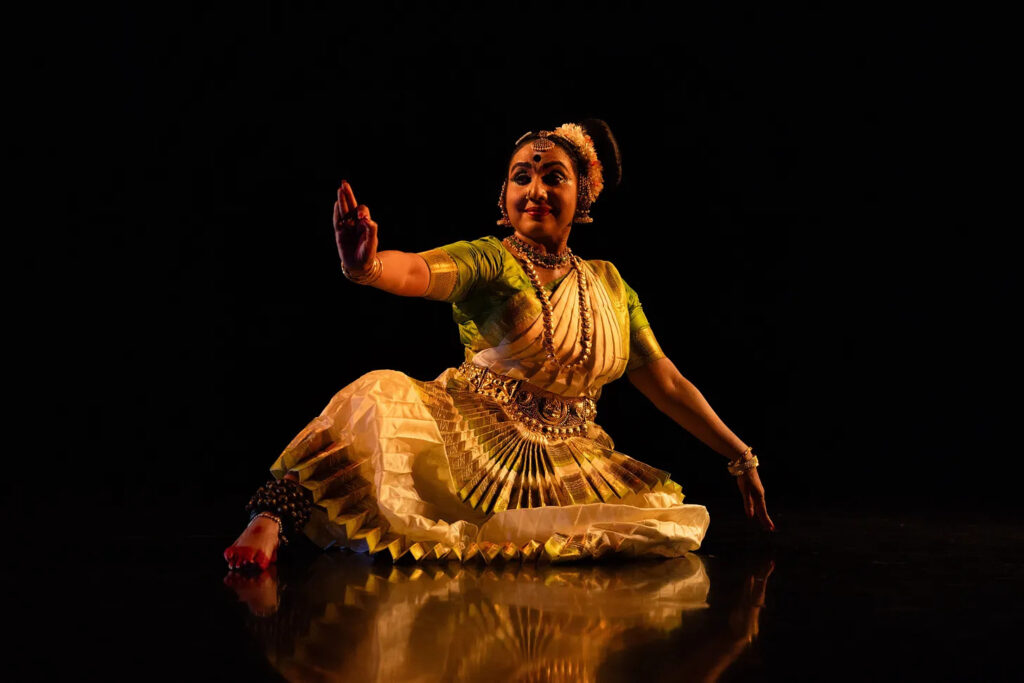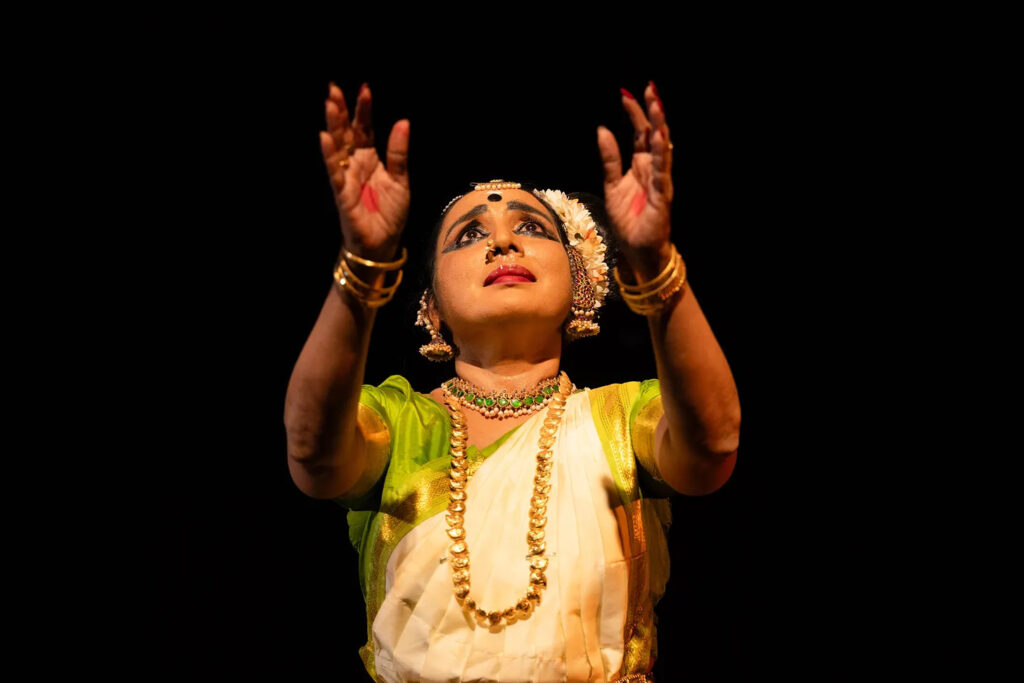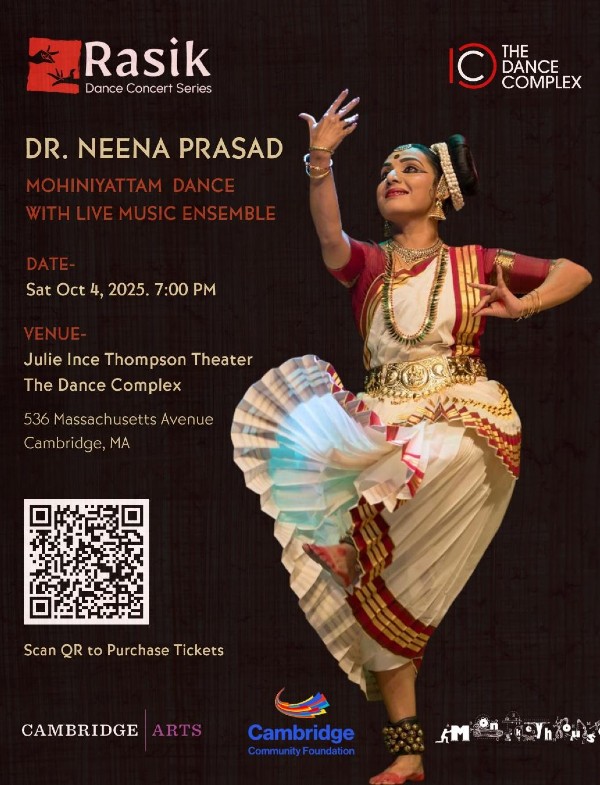The Rasik Dance Concert Series opened on October 4, 2025, at the Dance Complex in Boston with an elegant Mohiniyāṭṭam performance by Dr. Neena Prasad. She began with the traditional Cholkettu, evoking the image of Gaṇeśa with a delicate blend of maternal tenderness and devotional gravity, especially in her two nuanced articulations of the word Vakratunda. Dr. Prasad held a quietly commanding stage presence, using space with intention while drawing the audience inward rather than dazzling with overt flourish.
Among the evening’s memorable segments was her exploration of Bhūmi, the earth as “ever-giving” mother — where she eulogized the planet’s nurturing abundance yet lamented human greed, the “ruthless looting” that strips her of wealth and creates imbalance to our own peril. The treatment was both lyrical and pointed, balancing grace with an undercurrent of moral reflection.

Equally striking was her rendering of the Aṣṭapadī Sakhi he. Here, Dr. Prasad traced with rare sensitivity the shift from a young Rādhā — nervous and apprehensive in her first experience of love —to a more mature Rādhā recounting that same encounter to a confidante. It is uncommon to witness a performer delineate with such clarity the changing emotional textures we traverse from youth to adulthood.

In Āndōlikā, the pull of the palanquin, the grace of Lord Padmanabha,— bees drawn to the lotuses on Lord Padmanābha’s garland, were majestically evoked with poetic subtlety. This imagery gave way to a strikingly different mood in Amrapalli where she embodied the love, lament, and anguish of Amrapālī while describing death, scattered skulls, flowing blood, and a mother’s grief over her child’s body. These moments of searing poignancy were delivered without melodrama, and therefore, deeply affecting.
The musicians accompanying Dr. Neena Prasad — Changanasseri Madhavan Nampoothiri (vocal), Ramesh Babu (mṛdaṅgam), Kalamandalam Arundas (iḍakka), and Shyam Kalyan (violin) — gave assured, sensitive support. A special mention is due to Ramesh Babu for the intricacy and imagination of his rhythmic patterns, particularly notable in the absence of a nāṭṭuvaṉār; he sustained a steady kālapramāṇamand responded with nuance to the performance’s emotional and thematic demands. The only disturbance to the otherwise mellifluous flow was the random nāṭṭuvaṅgam interjected by the singer, which drifted along with the song rather than aligning with the dancer’s rhythmic structure while the mṛdaṅgist was anchoring the patterns. Jason Reis’s lighting was precise and evocative, while Circe Rowan’s sound design maintained clarity and balance, letting the work’s quiet strength come through.
The practice of keeping the auditorium doors closed between items ensured the flow of the performance was undisturbed and audiences remained fully absorbed. While one hopes future presentations might keep to the scheduled time, the evening itself was a delight. Kudos to Rasik for bringing artists of such eminence to the diaspora.

